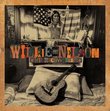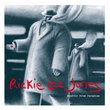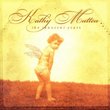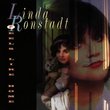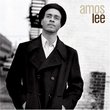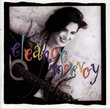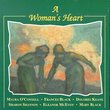| All Artists: Darden Smith Title: Little Victories Members Wishing: 0 Total Copies: 0 Label: Sony Original Release Date: 4/27/1993 Release Date: 4/27/1993 Genres: Country, Blues, Pop, Rock Styles: Americana, Today's Country, Contemporary Blues, Blues Rock Number of Discs: 1 SwapaCD Credits: 1 UPCs: 074644852820, 074644852844, 5099747360329 |
Search - Darden Smith :: Little Victories
 | Darden Smith Little Victories Genres: Country, Blues, Pop, Rock
|
Larger Image |
CD DetailsSimilarly Requested CDs
|
Member CD ReviewsReviewed on 9/7/2008... A superb album by a grossly under-appreciated artist. Although the production values are slicker on this album than any of his others, it exemplifies some truly outstanding songcraft.
CD ReviewsHas an appeal both immediate and lasting Ross Carlson | Redwood City, Ca United States | 07/30/2001 (5 out of 5 stars) "This CD was a personal discovery at a Tower Records listening station that has resonated within me for years. Darden is kind of like a friend you may have had prior to knowing he could sing, so you feel he's on your level and not trying to be anything but himself. The man on and off-stage are the same cool guy who's simply sharing his songs and love of music with you. And you're almost glad he's not any more famous than he is, so it doesn't seem like an illusion that you and he can relate. But a person probably needs to be down to earth to get him in a deep way anyway, so I think it's to his credit that he means a lot to the fans he has. The performances are unforced, human, and natural. Although these impressions even better describe his more recent work, I would still put THIS particular CD of his on my top ten albums for the reasons mentioned and because it is such a consistently good, cohesive set of songs. Like "Hole in the River", sometimes the more basic, the deeper the songs penetrate... Laid back, personal, unpretentious, infectious folk-rock from an observant loner." Mixed bag, but still a favorite of mine Glen Engel Cox | Kuala Lumpur, Malaysia | 10/02/2004 (5 out of 5 stars) "The progression of Darden Smith from his debut as a Lyle Lovett-lite country crooner to the smooth adult contemporary sound of Little Victories would have been alarming had there not been three intervening albums (two solo, one with Boo Hewerdine) that, like the word game where you add and subtract letters to go from one word to another in three changes, illustrated how the twang was removed and the strings added. The songs, mostly written by Smith, are not all that different between the two albums. What changed was the conception of how the songs should sound. I doubt this evolution was deliberative on Smith's part. More than likely he was responding to the positive feedback he received from AOR radio to his James Taylor-ish singer/songwriter aspect and the lack of response to his music from country stations looking for big hat dancehall singles or sickly sentimental ballads. Songs from his first album like the swingy "God's Will" might feature an accordion and steel guitar, but the lyrical use of biblical references used in a nonreligious manner was just a touch too edgy for mainstream country radio. I have no idea if the song title and form was an intentional homage to Lovett's song, "God Will," off his eponymous debut, but the songs have more in common than just the title: a first-person point of view that reflects both the singer's upbringing and conflict with that same. Lovett went AOR by embracing the big band spirit of Bob Wills, similar to k.d. lang. Smith's metamorphosis owes more to the spirit of 70s folk and blues artists like Bonnie Raitt, who found their sound smoothed out by expert producers like Don Was until they could find a place in elevators and doctor's offices.
The VH1 hit "Loving Arms" is probably Darden's pinnacle of pop popularity, a multitracked masterpiece that could have been lifted from Don Was's production playbook. There is nothing offensive about the song; there's also nothing that truly distinguishes it much either. I enjoy it because I like Smith's voice, Boo Hewerdine's backup, and the solo piano part, but anything else I say for it would be faint praise. Some of the other songs on Little Victories suffer from a similar production-heavy miasma, like "Place in the Sun," "Days on End," and the title track, although all of these songs show some sparks of the rougher edge that Darden can have. The bridge in "Days on End," in particular, where Smith's voice breaks into more of a nasal sneer (not necessarily matched by the sentiment of the feel-good lyrics) is an example of how these songs still have some individuality. I'd still likely enjoy Little Victories if all the songs were innocuous as those, making it an easy listening version of the Taxana music that I grew up with, but this is one of my favorite albums for all of the other songs. The reflective and mostly acoustic "Hole in the River" is a prime example of why Darden Smith is a favorite artist of mine: using two visual images in a kind of mixed metaphor that only seems to work in songs, Smith and his guitar achieves a feeling of sadness and longing that can stand for any number of life events--lost love, relationship arguments, death--just as the best poetry can achieve. "Only One Dream" is the piano acoustic complement to "Hole in the River," sounding like a church solo performance of one man's personal testimony of faith. "Love Left Town," I believe, is a song that had been written for Darden's previous album, Trouble No More, but which didn't make the cut, as it appeared on the Smith/Hewerdine interview disc, Midnight Train, and shares some similarities with that song: a driving guitar with a faster pace than the laid back piano of the AOR songs here. More so, it resembles some of the songs off Evidence, the Smith/Hewerdine collaboration album that first brought Darden to my attention. I think the Midnight Train version of this song, in an acoustic rendition, is even better, but it is one of my favorite Smith tracks. After this album, Smith would reject the pop world of VH1 pop for an album that was moodily self-reflective, an Elliot Smith-like deeply personal album. In this album, that move is foreshadowed by the subtle duet with Roseanne Cash, "Precious Time." It seems to me like a song that could easily have been included on Cash's own genre-bending album, Interiors, wherein she rejected her own previous brand of countrification for an intimate indy singer/songwriter stance. "Dream's a Dream" merges much of the other styles of the album into one song: heavy production, yet snappy guitar-based theme, harkening back to Smith's religious roots with the bridge call, "Father, forgive my sins." The vocals are more nasal here, occassionaly hinting of is Texan twange, and the sentiment is as self-actualizing as "God's Will." My absolute favorite song here, though, is "The Levee Song," cowritten with the man responsible for the Trogg's hit, "Wild Thang." Unlike the rest of the album, this song sounds like an escapee from Creedance Clearwater Revival, a little swamp-influenced blues-based tune that has an undercurrent of dirt both in the music and in the lyrics. There's just something about the way Darden sings, "Thinking 'bout your dress, it was lying on the floor," conjurs up all sorts of nasty thoughts. The complete album, admittedly, is a mixed bag, a far cry from the unified theme mixing religious imagery with personal stories that characterized Trouble No More. I'm sure that part of the reason I enjoy Little Victories is due to a holdover sentiment from that previous album, having connected so strongly with Smith there, and thus I focus on the little echoes that occur in this one. Smith himself seemes to have repudiated this album, which failed to meet the expectations either he or his label set for it at the time, and his follow-up, Deep Blue was such a radical departure that it is an album that I can't even listen to." |

 Track Listings (11) - Disc #1
Track Listings (11) - Disc #1